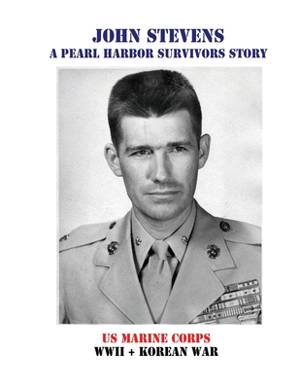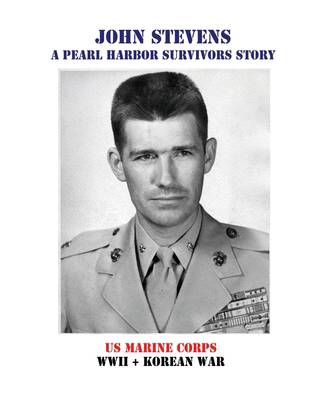
- Afhalen na 1 uur in een winkel met voorraad
- Gratis thuislevering in België vanaf € 30
- Ruim aanbod met 7 miljoen producten
- Afhalen na 1 uur in een winkel met voorraad
- Gratis thuislevering in België vanaf € 30
- Ruim aanbod met 7 miljoen producten
Zoeken
Omschrijving
The Korean conflict is known as "the Forgotten War," but one veteran who never forgot it was Lt. Col. John R. Stevens, U.S. Marine Corps. Lingering pain from frostbitten toes were a regular reminder of his part in the Battle of Chosin Reservoir, fought in minus-40 degree weather in 1950. Stevens earned a Bronze Star in Korea, a war that technically never ended. After his retirement, he got involved in... the long slog to get a Korean War memorial built in San Francisco. He spent seven years fundraising, working alone in a windowless office on Van Ness Avenue, before the $4 million monument overlooking San Francisco Bay was finally dedicated in 2016. Every year after, Stevens marked the anniversary of the start of the war, on June 25, by giving a speech at a ceremony there and laying a wreath on the memorial wall. "The Korean War Memorial would never have happened without John," said Don Reid, who also served in Korea and co-founded the memorial foundation with Stevens. "He was a true Marine, the total package. He stood for pride, commitment, dedication, virtue, honesty, loyalty and patriotism." Stevens was also on the ground during the bombing of Pearl Harbor and the eventual defeat of Japanese combatants at Okinawa. For his valor under fire, he received his first Bronze Star. "John was at Pearl Harbor, the Battle of Okinawa, the Pusan Perimeter, Inchon Landing, the liberation of Seoul and the Chosin Reservoir," said Gerard Parker, executive director of the Korean War Memorial Foundation. "From the beginning of World War II through the first crucial year of the Korean war, John had a knack for turning up in these key battles." Through it all, Stevens was soft-spoken, modest and dry, using no more words than the setting required. Once asked by an interviewer what it was like to be surrounded by 100,000 enemy troops at Chosin, he responded, "Lots of targets." After 23 years in the Marines, he went on to work 35 years in business, mostly in telecommunications and information technology companies. He started as a systems engineer at IBM and went on to start four companies. One of these, Centex, went public in 1987 and became a case study at Harvard business school, as an example of "how to run a successful IPO," said his son, John R. (Steve) Stevens II of Lafayette. (from San Francisco Chronicle Newspaper Article 04JUN2021 by Sam Whiting)
Specificaties
Betrokkenen
- Auteur(s):
- Uitgeverij:
Inhoud
- Aantal bladzijden:
- 80
- Taal:
- Engels
Eigenschappen
- Productcode (EAN):
- 9781630100292
- Verschijningsdatum:
- 7/06/2021
- Uitvoering:
- Paperback
- Formaat:
- Trade paperback (VS)
- Afmetingen:
- 216 mm x 279 mm
- Gewicht:
- 208 g

Alleen bij Standaard Boekhandel
+ 28 punten op je klantenkaart van Standaard Boekhandel
Beoordelingen
We publiceren alleen reviews die voldoen aan de voorwaarden voor reviews. Bekijk onze voorwaarden voor reviews.








